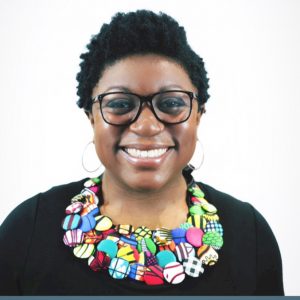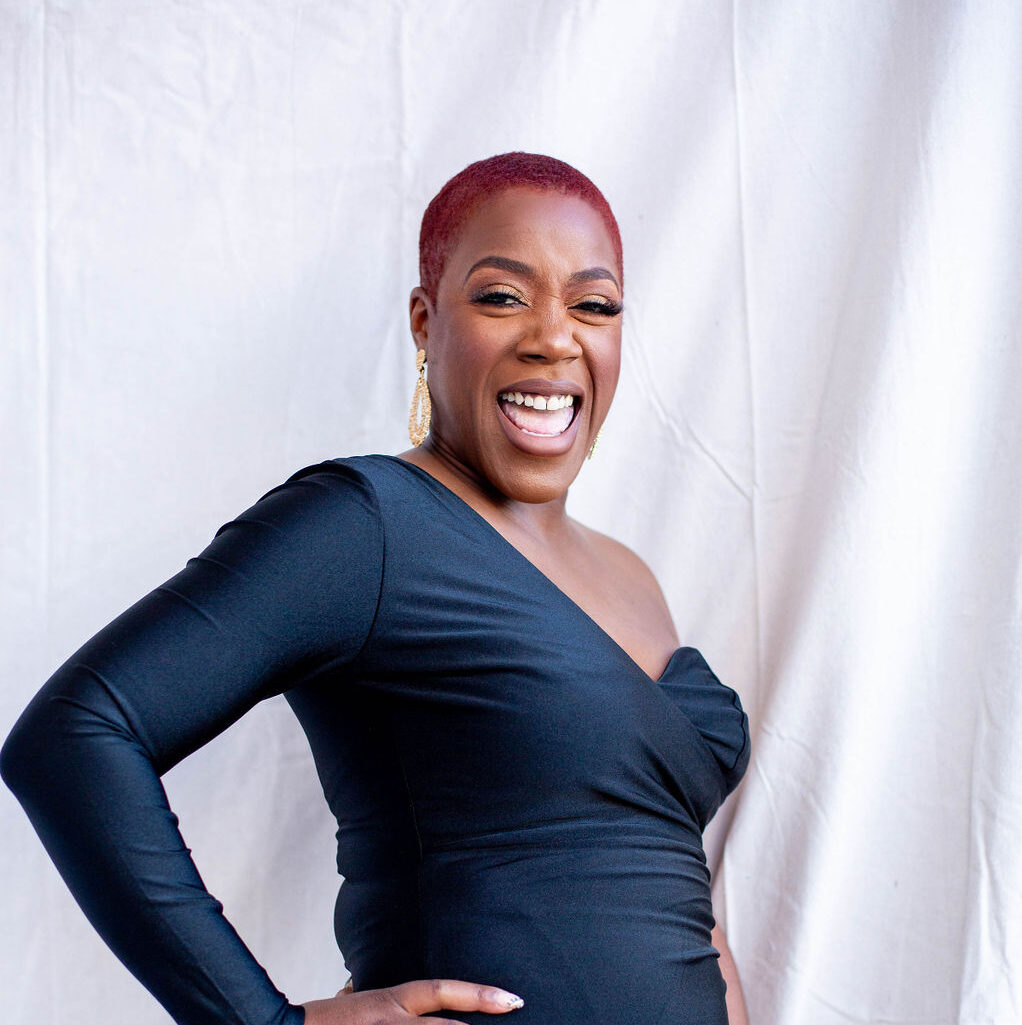Former White House Social Secretary Deesha Dyer is living life on her own terms
Working at the White House is a privilege and opportunity that many people will not see. So imagine not only working in the White House, but working your way up the later and spend the last two years as Social Secretary under the Obama Administration. Well, that’s the life Deesha Dyer has lived and she’s just getting started.
Read more about Deesha Dyer in Episode 16 of People You Should Know.

- You served as the White House Social Secretary under the Barack Obama administration from 2015 – 2017. What was it like working with the Obama’s?
It was good! That was my job for two years, but I had been at the White House since 2009. So that was not my first that my last job with them. It was wonderful. It was an honor and a lifetime experience that I don’t think I will ever repeat. I learned a lot from them and we had a great time.
- During you time at the White House you worked your way up to Social Secretary. How did you do it?
It’s two kinds of answers to that. One, I just went after opportunities that I liked and that I was interested in at the White House and there were open doors for me. When somebody would leave a position, I would look and see if I liked that position and so I would apply for it and get it and that’s how I kept kind of climbing up. I went after things I like to do and things I was interested in. So each time I got promoted it was really because these were opportunities that I saw open and I was interested in them so I just went for them.
- How many events would you plan on a monthly basis and what was it like?
Probably like 20 to 30. We had a team so it wasn’t just me. We had a whole team and that team included Secret Service, the military office, the White House residence office. So we have a whole team and we kind of just go step-by-step and put everything in order. I would lead everything and we would do a checklist.
- You and some of your former colleagues co-authored a book titled, “West Wingers: Stories from the Dream Chasers, Change Makers, and Hope Creators Inside the Obama White House” edited by Gautam Raghavan out September 25. You wrote a chapter titled “Imposter”. Can you tell us a little about the project?
Gautam served under the Obama Administration. I worked with him when he was the LGBTQ liaison, Gautam is a gay male and he has a husband and a daughter. He came to me and talked to me about doing a project that told the stories from the people in the White House that we worked with that were people of color, LGBTQ, and veterans. So there were all different kinds of people so he asked me to write a chapter on it and I did.
- How did President Obama affect the culture of the White House with him being the first black president?
I think that as far as him being the first black president, I’m not sure that shifted the culture of the White House much. I would say that what he believed – what him and the First Lady believed – implemented their vision and goal for a fair and justice country for everyone. They really wanted to bring everyone through the White House to see it, to talk about it, talk about issues. So I would say that their being inclusive and them wanting a fair and justice society for everyone helped shift the culture. Then again I wasn’t there before the Obama’s so I don’t know what the culture was like before. So I can’t really speak on how much its changed since I wasn’t there before but they (Obama’s) made it inclusive. They made people feel like they were part of the Democratic potluck.
- You’re the co-founder and Executive Director of a non-profit called beGirl.world that empowers young girls through education and travel. What made you and the others start this organization?
We started the organization because we, me and my good friend Marcella Hudson, both love traveling and we didn’t get to travel internationally until later in life; in our late 20s. She’s a single mom, and I just didn’t have the money. So we noticed there were a lot of black girls coming up that were the same way, not even just black girls but girls who were in a lower class, low income that didn’t have the money to travel. We wanted to start an organization that showed them the world beyond themselves and also beyond their neighborhood. So that’s why we really started it. Also we noticed there were not a lot of black students that were studying abroad, or there weren’t a lot of black people who went into careers in Foreign Service. So we decided to start the organization to really talk to high school girls and get high school girls to think about the possibilities of travel. What they do outside their normal day-to-day that could be global (like) global education, culture exchange in hopes that it plants a seed in them to become high school exchange students to apply to study abroad and maybe even go on to Foreign Service and have a career in another country. If they decided not to and want to stay here in America and do their thing too that’s fine. We just want girls to know that they have the possibility to do other things outside the country.
- You dropped out of college at 17 and then returned at 29 years old. What made you go back to get your degree?
I went back because I wanted to do social work and in order to do social work I had to have a degree. So I went back because I wanted to further my career and have a career and I figured out what I wanted to do and that’s why I decided to go back.
- Public speaking is something many people shy away from, but you gravitate to it. You have more than 10 years experience in public speaking and are represented by Outspoken Agency. Some of your speaking engagements including: Talk – Women’s History Month Celebration at Rutgers University (Camden, NJ), Panel – Philly Tech Week (Philadelphia, PA), and Commencement Address, Verde Valley School (Sedona, Arizona) to name a few. How did you become such a powerful speaker and do you have any helpful tips to share?
Public speaking I’ve been doing since before the White House. I did public speaking when I was an HIV/AIDS educator and I would go around doing speeches and demonstrations about reducing the risk of catching HIV/AIDS. That is not the most comfortable topic to talk about, so if you’re able to go in front of people and talk about penises and vaginas, oral sex, throat Chlamydia. If you’re able to do that, you can do anything in front of people. That lead to me talking more in the community about self-esteem, and I worked with the Pure Educating Group with a bunch of young women. So it kind of all just raveled together. Then when I went to the White House there really wasn’t a lot of public speaking because that wasn’t my role there. So I did things here and there, but it really wasn’t a big deal. Now that I’ve left I use my voice to show people what’s possible and hopefully inspire them as well.
The tips I give people is start in your community where you’re comfortable. Start from there with a topic that you’re passionate about and you can speak about off the top of your head. Also, engage people that you’re talking to in the conversation. I always have a question and answer segment making sure that people don’t feel like I’m just talking to them.
- Has working in the political field helped you to become a more conscience citizen?
I don’t know if it’s made me become more conscience. I think it’s made me become more educated on the workings of how things get done and makes me more educated on how I can go about making change in a different way besides community activism.
- Where do you see yourself in 5 years?
I have no idea. For me, I don’t look that far ahead because I don’t like time limits because it makes you feel like you’re under pressure. I’ve never been that way. So for me it’s always the same. I just want to be healthy doing something that I love and making change in some way. That’s my goal. If you ask me what my goal is for tomorrow it’ll be the same thing. So, I don’t really see a 5-year plan and that’s because I don’t make plans. I feel like in doing that I don’t want to set myself up disappointment and I also don’t want to put myself on one track and then find out halfway through it I don’t even like that track anymore. I’m very fluid. So if I like something, I’ll do it and when I don’t like it anymore I’ll stop doing it. So who knows? In 5 years, we’ll see.

